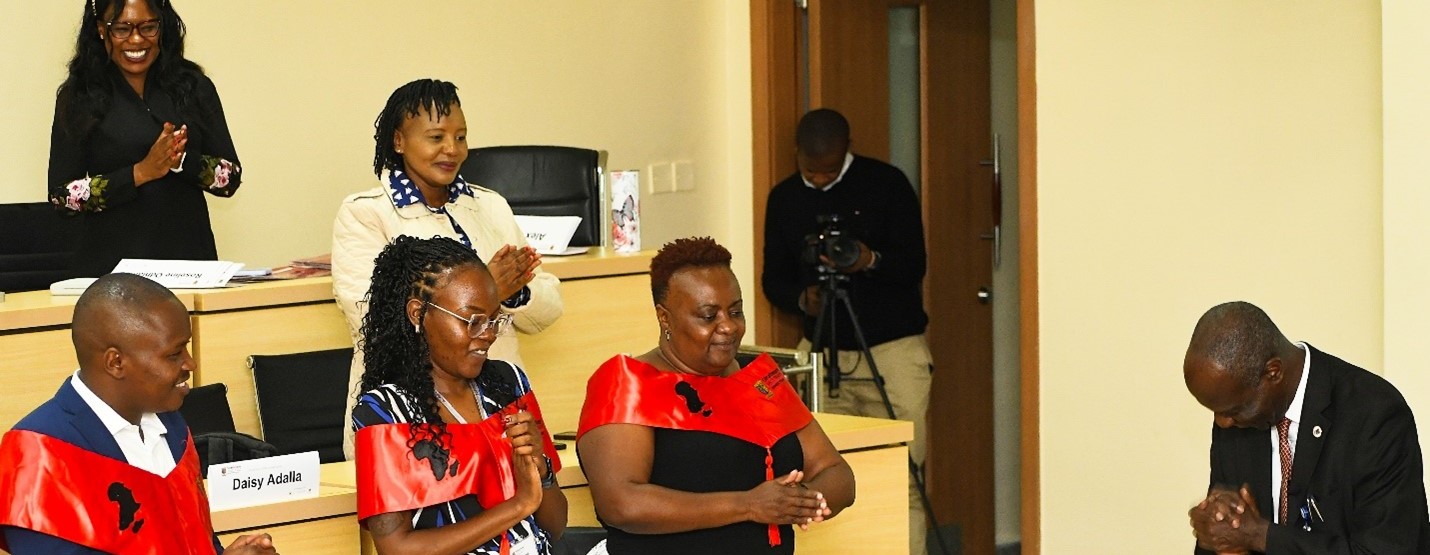
Training Program for Health Entrepreneurs in Kenya Facilitates Access to $2 Million in Funding
One of the most pressing challenges for health entrepreneurs in Kenya is a lack of access to adequate financing to support and scale maternal health products and services. While health outcomes have improved in Kenya over the past two decades, funding is vital to maintain the health resources necessary to ensure sustained, adequate health services for millions of Kenyans. In particular, there is need to prioritize strengthening the capacity of private health facilities, which make up about half of all health facilities in Kenya, to provide quality maternal health services. Findings from the 2023 Kenya health facilities census found that less than half of all health facilities in the country are offering maternity services with only a third of the facilities offering emergency obstetric care. Still, many potential investors are reluctant to invest in the healthcare sector, due to the perceived risks, complexity, and uncertainty involved. To empower health entrepreneurs with the skills and knowledge they need to attract and secure funding, USAID’s Frontier Health Markets (FHM) Engage is proud to announce the creation – and recent first course completion – of the Health Entrepreneurship Financing Program, a groundbreaking initiative that aims to bridge this financing gap.
The Health Entrepreneurship Financing Program was co-developed by FHM Engage, Strathmore University Business School, and SNDBX International. Strathmore is an FHM Engage network implementing partner (NIP) and a leading institution in Kenya with a strong reputation for training healthcare managers through its academic and executive programs at its Institute of Healthcare Management. SNDBX International is an entrepreneur support hub and a one-stop shop for entrepreneur growth solutions. Program faculty included experts in policy, strategy, leading healthcare organizations, finance, accounting and tax, sales and marketing, e-commerce, legal, governance and risk management in healthcare, managing the health workforce, and supply chain.
On March 4, 2024, the Health Entrepreneurship Financing Program launched with the aim to bolster the business operations and management expertise of 26 health entrepreneurs nationwide to prepare them for growth and to set them up to qualify for financing from local banks. The entrepreneurs were selected as they faced hurdles in sustaining and expanding their ventures due to limited access to financial solutions, which ultimately hindered their ability to tackle diverse health issues, including maternal and child health, infectious diseases, mental health, and digital health.
When the Health Entrepreneurship Financing Program concluded on May 3, 2024, the entrepreneurs reported significant improvements in their fundraising abilities, networking skills, and overall confidence. Participants had established peer-to-peer support strategies during the program, which included visits to each other’s facilities and accelerated the sharing of best practices, cross-learning, and even catalyzed mentoring for other budding entrepreneurs.
Most significantly, as a result of the Health Entrepreneurship Financing Program, participants received expressions of interest from a number of local banks and an equity investment partner, amounting to over $2 million in potential funding. Moreover, the program created an industry buzz across the networks of health providers including the Kenya Association of Private Hospitals and the Rural Hospitals Association, on investor readiness programs across the continent. This has contributed to raising awareness and advocacy for health entrepreneurship as a key driver of health system improvement and social impact in Kenya.
Overall, the Health Entrepreneurship Financing Program allows health enterprises to gain sufficient capacity to access financing opportunities by building a bridge between lenders and borrowers. The program also fosters a supportive ecosystem for health entrepreneurship in Kenya through the “Health Enterprise Support Ecosystem Village,” which allows for continued access to the program’s faculty and SNBX’s independent professional industry experts.
FHM Engage and Strathmore University will continue to build on this success by developing a framework based on learnings from this first program to expand to a second set of participants targeting maternal, newborn, and child health outcomes. The next program is slated to run in July and August.
Banner photo: Participants of the Health Entrepreneurship Financing Program and a program faculty member thank each other. Photo credit: FHM Engage.
Recent Highlights
-
Written by : FHM Engage
-
Published on : 29-May-24
- Highlight Type : News
- Country : Kenya
- Project : FHM Engage
- Language : English

